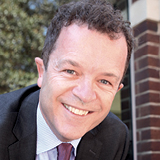If you have a proposal for an inventive, low cost, high impact project with a focus on socially and economically disadvantaged communities, we want to hear from you.
A legal chatbot that assists clients with straightforward matters is now live at Marrickville Legal Centre.
The Sydney centre is the first in the state to harness artificial intelligence to help disadvantaged clients under the NSW Government’s Access to Justice Innovation Fund.
The online chatbot NALA (New Age Legal Assistant) can help clients with traffic-related matters and tenancy issues, as well as other administrative tasks like booking appointments and preparing letters requesting court date changes.
Marrickville Legal Centre’s Managing Principal Solicitor Vasili Maroulis said NALA will slash wait times for hundreds of people each week, but it won’t replace face-to-face services.
“Just like first responders, frontline legal services must attend to enquiries urgently before legal issues compound into crises,” Mr Maroulis said.
“NALA will make legal information more accessible and enable practitioners to do what they do best: helping our vulnerable clients.”
NSW Attorney General Mark Speakman said the project “could revolutionise service delivery in CLCs by reducing the bottleneck of simple queries”.
“NALA answers commonly asked legal questions in real time, auto-generates documents for users, and automates straightforward administrative tasks [and] this frees up CLC staff to assist people more personally with more complex legal problems,” Speakman said.
 Mark Speakman, NSW Attorney General
Mark Speakman, NSW Attorney General
Marrickville Legal Centre also developed a scalable model of this chatbot technology, which means it can be rolled out to CLCs across NSW.
The NSW Government has pledged $1 million over four years to the fund, offering grants of up to $250,000 each year. The annual grants intend to reduce barriers to the justice system with tech-savvy solutions.
Applications for the second round of funding will open on 1 February 2021.
“We encourage ideas from legal professionals, community groups, coders and social entrepreneurs that improve the way legal problems are resolved, or help people navigate the justice system,” Speakman said.
“If you have a proposal for an inventive, low cost, high impact project with a focus on socially and economically disadvantaged communities, we want to hear from you.”




